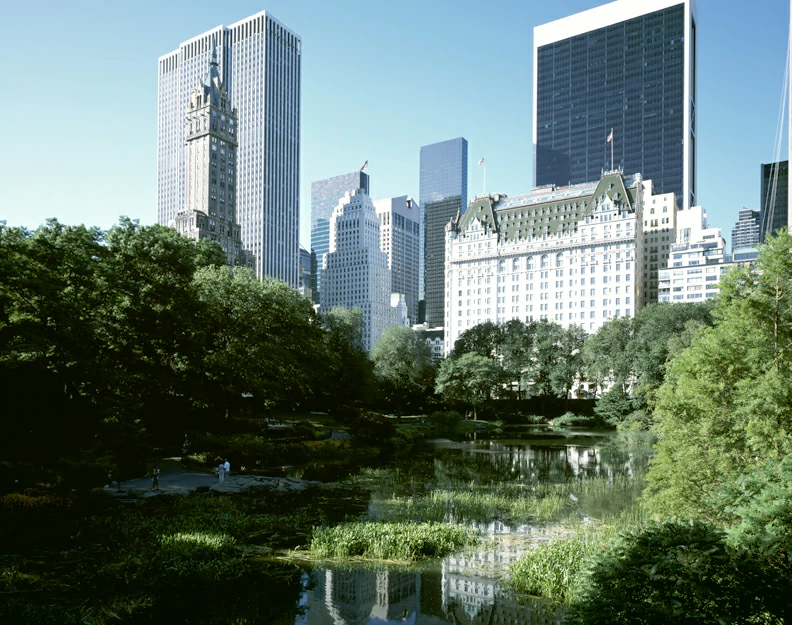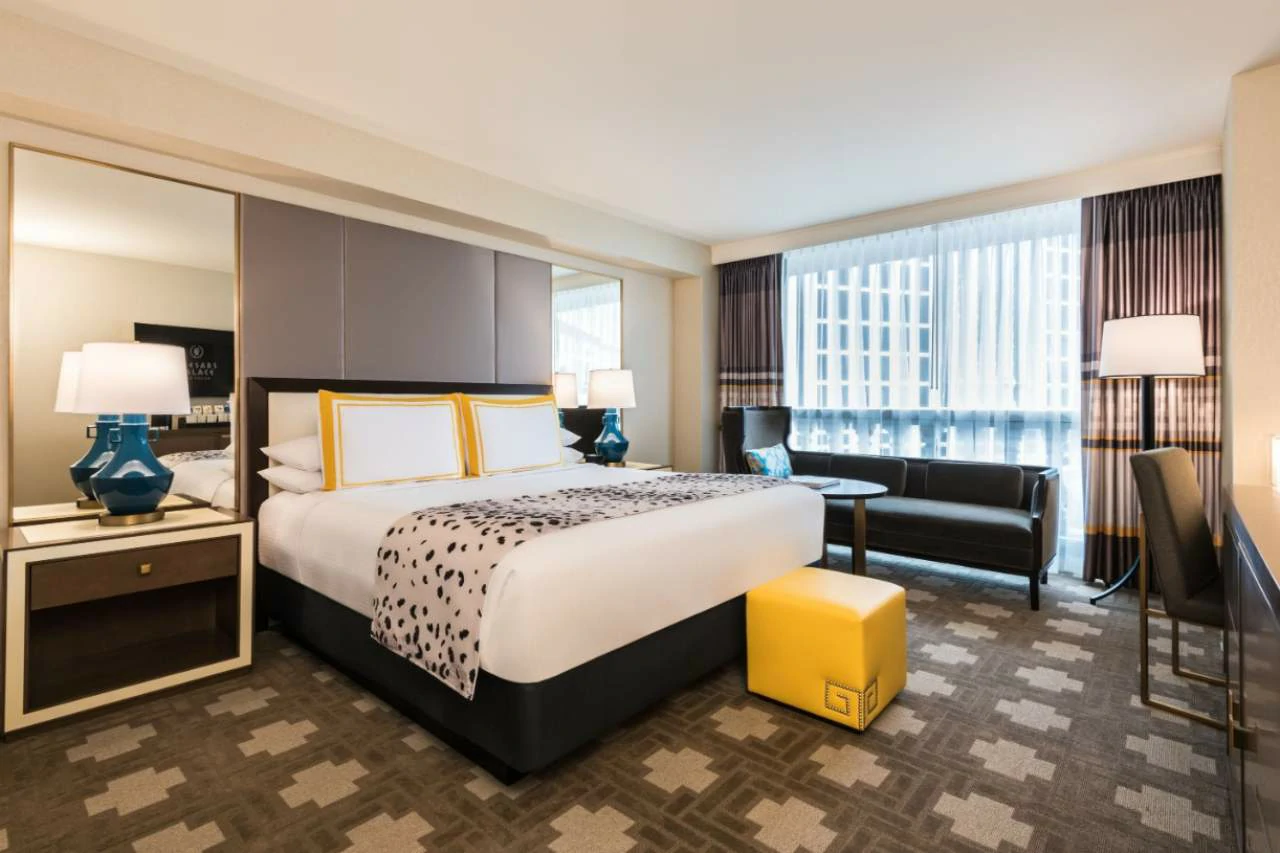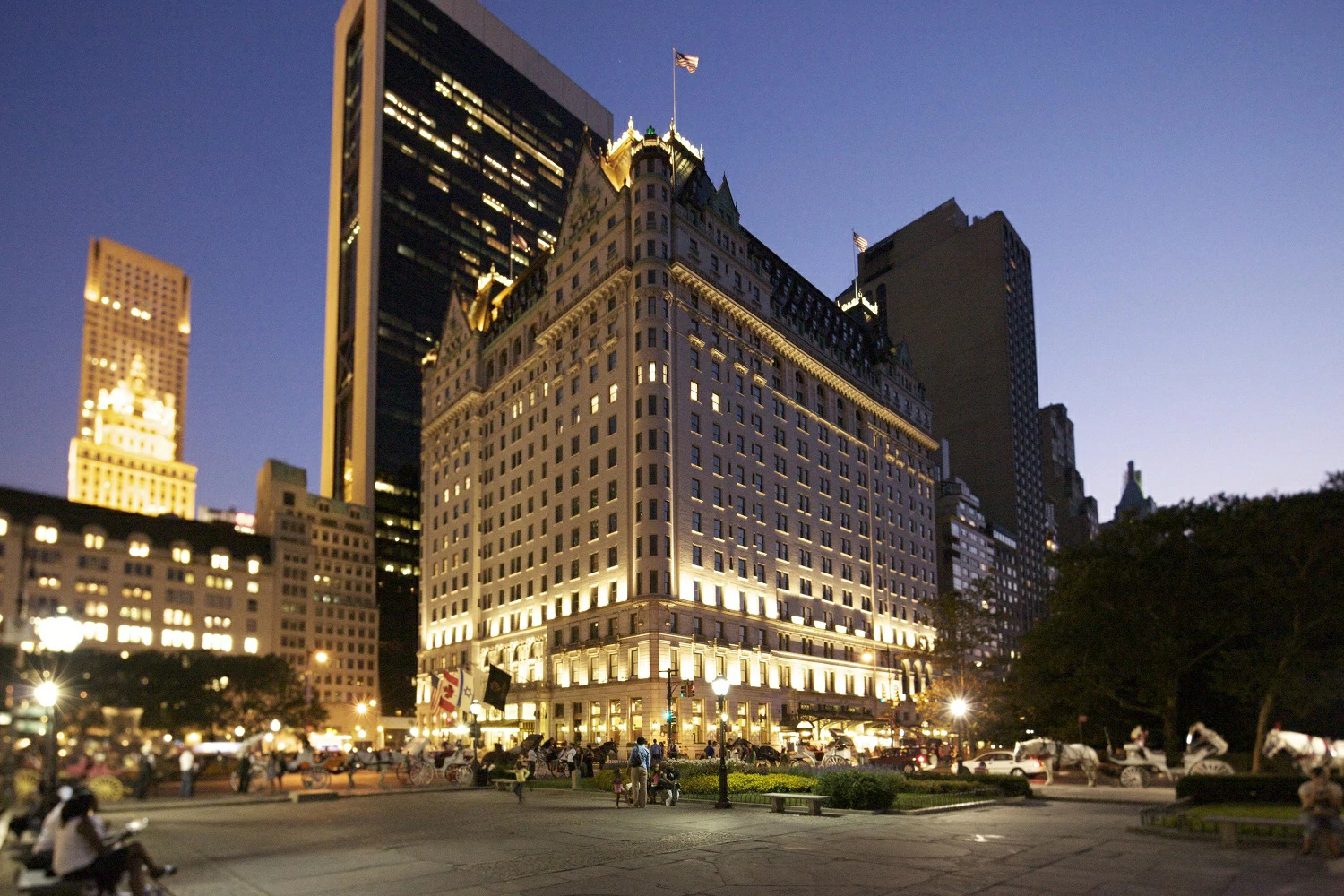Who Owns the Plaza Hotel in New York? Answer is – The iconic Plaza Hotel in New York City is currently owned by Katara Hospitality. This Qatar-based global hotel owner and developer has a portfolio of over 40 luxury properties around the world. The Plaza Hotel has a storied history, having changed hands multiple times since its opening in 1907. Notable past owners include Conrad Hilton, Donald Trump, and Indian conglomerate Sahara India Pariwar.
Summary
- The Plaza Hotel is a renowned landmark in New York City.
- Its ownership has changed hands numerous times throughout its history.
- The current owner is Katara Hospitality, a Qatar-based company.
- Prominent past owners include Conrad Hilton, Donald Trump, and Sahara India Pariwar.
Who Owns the Plaza Hotel in New York?

The Plaza Hotel, standing proudly at the corner of Fifth Avenue and Central Park South, is more than just a hotel; it’s a symbol of New York City’s enduring glamour and sophistication.
Since its opening in 1907, this Beaux-Arts masterpiece has witnessed the ebb and flow of history, hosting everyone from world leaders and captains of industry to Hollywood icons and literary legends.
The Plaza’s significance lies in its ability to transcend the mere concept of lodging. It’s a place where dreams and ambitions have played out, where iconic movie scenes were filmed (Home Alone 2: Lost in New York, The Great Gatsby, and where countless tales of love, intrigue, and New York extravagance were born.
I myself recall my first visit as a wide-eyed tourist – the Palm Court’s grandeur, the whisper of history in its halls, cemented the Plaza as an essential part of the New York experience.
The Plaza Hotel’s significance is intertwined with the city’s own identity. Its blend of old-world elegance and modern vitality mirrors New York’s ability to reinvent itself while remaining true to its core.
Stepping into The Plaza is like stepping into a time capsule of New York’s most celebrated eras, yet with a distinctly contemporary energy. It’s this unique juxtaposition that makes the Plaza Hotel an integral part of New York City’s timeless allure.
History of Ownership
1. The Early Years
Original developers and construction (1907): The Plaza Hotel was the vision of financier Bernhard Beinecke and hotelier Fred Sterry.
They partnered with the Fuller Construction Company, led by Harry S. Black, to replace an older hotel of the same name on the site.
Architect Henry Janeway Hardenbergh was chosen for his expertise in European-inspired design, resulting in the grand French Renaissance style we see today.
Construction began in 1905 and the hotel opened its doors on October 1, 1907, setting a new standard for luxury accommodations in the city.
2. Conrad Hilton’s Era
A new chapter: In 1943, hotel magnate Conrad Hilton purchased the Plaza Hotel, marking a significant turning point in its history. Hilton brought his renowned business acumen and focus on hospitality to the iconic property.
His ownership saw the addition of the glamorous Persian Room nightclub, which attracted top entertainers and socialites.
Hilton also expanded the hotel’s real estate holdings, solidifying its position as a cornerstone of New York City’s landscape.
3. Multiple Owners and Changing Times
Shifting tides: After Conrad Hilton, the Plaza Hotel experienced a period of frequent ownership changes, reflecting the larger trends in the hospitality industry and global real estate market.
1975: Western International Hotels (later Westin Hotels & Resorts) acquired the Plaza, investing in renovations to maintain its competitiveness among the city’s emerging luxury hotels.
1988: Controversial business mogul Donald Trump made headlines by purchasing the Plaza for a then-record-setting $407 million. His ownership was marked by high-profile renovations, aiming to restore the hotel’s original opulence. However, his tenure was also accompanied by financial struggles and public battles over management decisions..
1995: A partnership led by Saudi Prince Alwaleed bin Talal and Singapore-based CDL Hotels took control of the Plaza. This began a period of international ownership that aimed to capitalize on the hotel’s global reputation.
4. Donald Trump’s Ownership: Purchase and Controversies
Donald Trump’s foray into the iconic Plaza Hotel symbolized both his ambition and the turbulent business practices of the late 1980s.
The Purchase: Trump acquired the Plaza in 1988 for a staggering $390 million. Renowned for its gilded opulence and prime location on Central Park South, the Plaza was a trophy property, and Trump envisioned transforming it into the most luxurious hotel in the world.
Renovations and High Debt: Trump poured millions into renovations, aiming for an aesthetic of over-the-top extravagance. However, these renovations were accompanied by mounting debt, as much of the financing relied on high-interest junk bonds.
Ivana Trump’s Role: Trump’s then-wife, Ivana, played a prominent role in the redesign and was even appointed as president of the hotel. This marked her increasing involvement in the Trump business empire.
Financial Decline and Bankruptcy: Despite the glamorous facade, the Plaza Hotel failed to generate the revenue needed to cover its substantial debt. Burdened by financial mismanagement and declining occupancy rates, the Plaza filed for bankruptcy protection in 1992.
Loss of Ownership: The bankruptcy proceedings forced Donald Trump to relinquish a majority stake in the Plaza to a consortium of lenders in exchange for debt relief. It was a significant blow to his reputation as a dealmaker.
5. Sahara India Pariwar Acquisition
In 1995, following Trump’s tumultuous ownership, the Plaza Hotel entered a new chapter under the Indian conglomerate Sahara India Pariwar.
Indian Investment: The Sahara group, led by Subrata Roy, purchased the Plaza for around $325 million. This acquisition marked a growing trend of Indian investment in high-profile international properties.
Controversial Ownership: Sahara India Pariwar’s tenure as owners of the Plaza was not without controversy. Subrata Roy faced allegations of financial irregularities and was later imprisoned in India on charges of defrauding investors.
Legal Disputes: The ownership of the Plaza became entangled in legal complications surrounding Subrata Roy and Sahara India Pariwar’s financial dealings.
6. Katara Hospitality Takes Over
The Plaza Hotel was eventually acquired by Katara Hospitality, a Qatar-owned global hotel owner, in 2012.
Change in Ownership: The reported sale price of $570 million signified a renewed optimism in the property’s potential. Katara Hospitality is a subsidiary of the Qatar Investment Authority, the state-owned sovereign wealth fund of Qatar.
Renovations and a New Vision: Katara Hospitality undertook extensive renovations to the property, blending the Plaza’s historic grandeur with modern amenities. This included transforming some of the hotel rooms into luxury condominiums.
Shift in Focus: The Plaza’s transformation under Katara Hospitality includes a reduced hotel room inventory and a greater emphasis on its high-end private residences, catering to an ultra-wealthy clientele.
Current Ownership and Management:
- Owners: The Plaza Hotel is currently owned by Katara Hospitality, a globally recognized hotel investment and management company.
- Management: Renowned luxury hoteliers Fairmont Hotels and Resorts manage the day-to-day operations of the Plaza Hotel.
What Does This Mean for the Plaza Hotel?

The Plaza Hotel’s transition from the hands of celebrity figures and controversial businessmen to ownership by a state-backed investment group represents a fundamental shift in its trajectory.
Katara Hospitality’s acquisition has set the stage for a blend of careful preservation with strategic development, aimed at redefining the iconic hotel for the 21st century.
1. Katara Hospitality’s Vision
Understanding Katara Hospitality’s motivations and investment philosophy is key to grasping the implications for the Plaza Hotel.
Renovations and Preservation: Katara Hospitality has invested heavily in renovations that modernize the Plaza while respectfully maintaining its architectural and historical significance. The goal is to cater to the evolving needs and expectations of luxury travelers.
Balancing Luxury and Historic Charm: A primary challenge faced by Katara is finding a balance between world-class, contemporary amenities and the nostalgic allure that’s so deeply intertwined with the Plaza’s identity. Striking this balance is crucial to attracting both legacy patrons and a new generation of well-heeled travelers.
Global Investment Strategy: Katara Hospitality, backed by the wealth of the Qatari state, possesses a long-term investment horizon. They see the Plaza as a legacy asset within a portfolio that includes other iconic hotels around the globe, such as The Savoy in London.
2. The Future of the Plaza
The Plaza Hotel’s trajectory under its current management holds several possibilities:
Redefined Luxury Experience: Expect the hotel to shed some of its old-world stuffiness in favor of a more tailored and sophisticated guest experience. This might involve advanced in-room technologies, personalized service, and exclusive partnerships with high-end brands.
Residential Focus: The continued conversion of hotel rooms into luxury condominiums signals a more diversified business model. This caters to the growing market of international buyers seeking ownership at a prestigious New York address.
Cultural Landmark: While its hotel component might shrink in relation to residences, the Plaza will likely retain its landmark status. Expect the famous Palm Court, Oak Room, and other public spaces to remain key attractions. The hotel will continue to be an integral part of the New York City cultural landscape, with the potential to host high-profile events and gatherings.
A Changing Clientele: The Plaza’s future caters to the global elite, attracting financiers, dignitaries, and celebrities from around the world. The changing nature of its clientele will also contribute to its evolving character.
FAQs
Why has the Plaza Hotel changed ownership so frequently?
The Plaza Hotel’s frequent changes in ownership reflect a combination of factors:
- High Valuation and Debt: The Plaza has always commanded a high valuation, making it an attractive target but also resulting in significant debt burdens for its owners. Economic downturns or financial mismanagement have led several owners to default on loans.
- Shifting Market Trends: Consumer preferences in luxury travel have changed over time. Owners must adapt the Plaza’s offerings and amenities to remain competitive. Failure to do so can lead to financial strain and the necessity of selling.
- Prestige Asset: The Plaza’s status as a New York City icon can attract buyers with larger-than-life ambitions, but who may lack the hospitality experience or financial resources required for long-term management.
What were the most significant changes made under each owner?
- Hilton Hotels (1943-1988): Hilton modernized the hotel, adding air conditioning and streamlining operations. It became known for its excellent service and amenities.
- Donald Trump (1988-1995): Trump engaged in lavish renovations focused on over-the-top gilded extravagance. Ivana Trump played a key role in the re-design.
- Sahara India Pariwar (1995-2012): This period saw fewer significant changes to the Plaza, but was marked by legal controversies surrounding the owner.
- Katara Hospitality (2012-Present): Katara has undertaken substantial renovations, aiming to marry modern luxury with the hotel’s historic character. They also introduced a residential component, converting some units into condominiums.
Did the Plaza’s reputation change with different owners?
Absolutely. Each ownership period has left a distinct imprint on the Plaza’s legacy:
- Hilton Era: Associated with traditional luxury, excellent service, and a focus on high-society clientele.
- Trump Era: Became synonymous with 1980s opulence, celebrity association, and, ultimately, financial instability.
- Sahara Period: Suffered from the negative press associated with the owner’s legal troubles.
- Katara Period: The hotel aims to reclaim a reputation for sophisticated luxury, catering to a global elite clientele.
Were there any legal issues associated with past ownerships?
Yes, several ownership phases saw legal complications:
- Donald Trump: His Plaza ownership culminated in bankruptcy, with lenders ultimately taking control of the property.
- Sahara India Pariwar: Subrata Roy, head of Sahara India Pariwar, faced fraud and money-laundering allegations in India, complicating the Plaza’s ownership situation.
Conclusion
The Plaza Hotel’s rich history of changing ownership is a microcosm of shifting economic trends, evolving tastes in luxury, and the allure of a New York City landmark.
Its trajectory has been shaped by both prudent business decisions and headline-grabbing episodes of financial trouble.
Under its current ownership, the Plaza seems positioned for a more stable era. Katara Hospitality’s deep pockets and focus on long-term investment bode well for both preserving the hotel’s historic appeal and securing its place in the competitive luxury market of the 21st century.
Whether it can regain the level of iconic status it held during its early decades remains to be seen.







